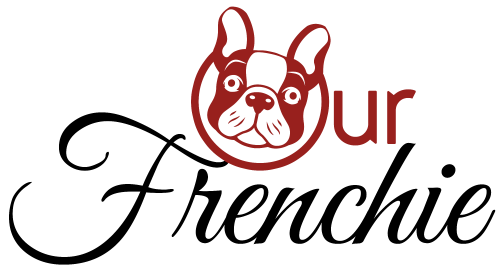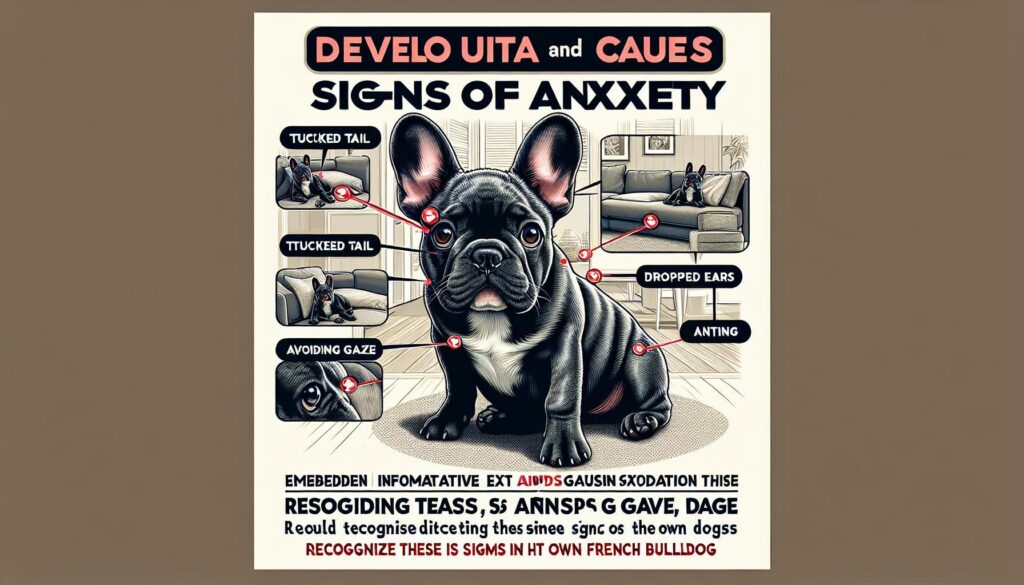About
How to Tell If Your French Bulldog is Anxious
Page Contents
French bulldogs,with their charming personalities and distinctive bat-like ears,are beloved companions. However, like all dogs, they can experience anxiety, which may manifest in various ways. Understanding the signs of anxiety in your French Bulldog is crucial for their well-being and your peace of mind. From subtle behavioral changes too more noticeable physical symptoms, recognizing these indicators can help you address their needs effectively. In this article, we’ll explore how to identify anxiety in your French Bulldog and offer tips on how to provide comfort and support to your furry friend.
Recognizing Anxiety Signs in French bulldogs
French Bulldogs, with their charming personalities and expressive faces, can sometimes display signs of anxiety that are easy to miss if you’re not familiar with their behavior. Recognizing these signs early can help you address the issue and provide your furry friend with the comfort they need. Here are some common indicators that your French Bulldog might be feeling anxious:
- Excessive Barking or Whining: If your usually quiet Frenchie starts barking or whining more than usual, it could be a sign of distress. Pay attention to when this behavior occurs, as it might be triggered by specific situations or changes in their environment.
- Pacing or Restlessness: An anxious French Bulldog may have difficulty settling down. You might notice them pacing back and forth or unable to find a agreeable spot to relax.
- Destructive Behavior: Chewing on furniture, shoes, or other household items can be a way for your French Bulldog to cope with anxiety. This behavior is often a cry for attention or a release of pent-up energy.
- Changes in Appetite: Anxiety can affect your dogS eating habits. Some French Bulldogs may lose interest in their food, while others might start overeating as a form of self-comfort.
- Increased Shedding: Stress can lead to an increase in shedding. If you notice more hair around the house than usual, it might be worth considering whether your pet is experiencing anxiety.
Understanding these signs can definitely help you take the necessary steps to alleviate your French Bulldog’s anxiety. Whether it’s providing a safe space, engaging in calming activities, or consulting with a veterinarian for further advice, being attentive to these behaviors is crucial for your pet’s well-being.
Understanding Body Language and Behavior
Recognizing anxiety in your French Bulldog requires a keen eye for subtle changes in their body language and behavior. These small,yet important,signs can help you address their unease before it escalates. **Watch for tense body posture**—a stiff tail, rigid back, or tucked-in tail can indicate discomfort. **Ears pinned back** against the head or a furrowed brow might also signal distress.
Behavioral changes often accompany physical signs. An anxious French Bulldog may exhibit **excessive panting**, even when not hot or tired, or display **increased vocalization** such as whining or barking. They might also become more **clingy**, seeking constant reassurance from their human companions, or conversely, they might **withdraw** and hide in a quiet corner.
- **Pacing or restlessness**: Your dog might seem unable to settle down or find a comfortable position.
- **Destructive behavior**: chewing on furniture or other items can be a sign of anxiety.
- **Changes in appetite**: Some dogs eat less when anxious, while others might overeat.
- **Licking or chewing paws**: This can be a self-soothing behavior frequently enough linked to stress.
By understanding these cues, you can better support your French Bulldog in overcoming anxiety, ensuring they feel safe and secure in their environment.
Common Triggers of Anxiety in Bulldogs
- Loud Noises: French Bulldogs, like many other dog breeds, can become anxious when exposed to loud noises such as thunderstorms, fireworks, or even household appliances like vacuum cleaners. Their sensitive hearing makes these sounds more intense and possibly frightening.
- Separation Anxiety: These affectionate dogs form strong bonds with their owners and may experience distress when left alone for extended periods.Signs of separation anxiety can include excessive barking, destructive behavior, or attempts to escape.
- Changes in Environment: Moving to a new home, rearranging furniture, or introducing new pets can be unsettling for your French Bulldog. They thrive on routine and familiarity, so any significant change can trigger anxiety.
- Social Interactions: while generally sociable, some French Bulldogs may feel anxious in crowded or unfamiliar social settings. This can include interactions with new people, other dogs, or visiting busy places like parks or pet-friendly events.
- Health Issues: Undiagnosed medical conditions or discomfort can also lead to anxiety.If your french Bulldog suddenly shows signs of stress, a visit to the vet might be necessary to rule out any health concerns.
Understanding these triggers can help you manage your French Bulldog’s anxiety more effectively. By being aware of what might cause stress,you can take proactive steps to create a more comforting environment for your furry friend.
How to Calm an Anxious French Bulldog
Calming an anxious French Bulldog involves a combination of understanding their needs and creating a soothing environment. Start by establishing a consistent routine, as these dogs thrive on predictability. Ensure regular feeding times and walks, which can help reduce anxiety by providing a sense of security. Additionally,create a cozy,safe space where your French Bulldog can retreat when feeling overwhelmed.This could be a quiet corner with their favorite blanket and toys.
Incorporate calming techniques such as gentle petting, which can help release tension. **Massage** their back or ears in slow, circular motions to promote relaxation. Playing soft music or using a white noise machine can also create a peaceful atmosphere that drowns out stress-inducing noises.If your French Bulldog is especially anxious, consider using **calming pheromone diffusers** or sprays designed for dogs, which can have a soothing affect.
- Engage in regular physical activity to help expend excess energy and reduce stress levels.
- Practice basic obedience training to reinforce positive behavior and boost confidence.
- Offer interactive toys to keep their mind occupied and distracted from anxiety triggers.
- Consider consulting with a veterinarian or a professional dog trainer for additional support.
Effective Anxiety-reducing Techniques
Understanding and addressing anxiety in your French Bulldog can substantially enhance their quality of life. One effective technique is creating a **safe space** for your pet. This could be a cozy corner with their favorite blanket and toys,where they can retreat whenever they feel overwhelmed. Consistency is key, so ensure this area is accessible at all times, providing a sense of security and familiarity.
Incorporating **calming exercises** into your routine can also be beneficial. Engage your French Bulldog in activities such as gentle play, training sessions, or puzzle games that stimulate their mind without causing stress. Regular exercise not only helps in reducing anxiety but also strengthens your bond with your pet. Additionally, consider incorporating **aromatherapy** by using calming scents like lavender or chamomile, which can have a soothing effect on your dog’s nerves.
- **Routine and Structure**: Maintain a consistent daily schedule for feeding, walks, and playtime to provide predictability.
- **Positive Reinforcement**: Reward calm behavior with treats and praise to encourage relaxation.
- **Socialization**: Gradually expose your French Bulldog to new experiences and environments to build confidence.
- **Professional Help**: If anxiety persists, consult with a veterinarian or a certified animal behaviorist for tailored advice.
When to Consult a Veterinarian
While it’s normal for French Bulldogs to experience occasional anxiety, persistent or severe symptoms may require professional attention. **Consulting a veterinarian** is crucial if you notice any of the following signs:
- **Prolonged behavioral changes**: If your French Bulldog exhibits anxiety-related behaviors such as excessive barking, destructive chewing, or aggression for more than a few weeks, it might potentially be time to seek expert advice.
- **Physical symptoms**: Look out for signs like vomiting, diarrhea, or loss of appetite, which could indicate stress-related health issues.
- **Self-harm**: Behaviors such as excessive licking, biting, or scratching can lead to skin irritations or infections, requiring veterinary intervention.
Veterinarians can help diagnose underlying issues, rule out medical causes, and recommend treatment options, such as behavioral therapy or medication. Early consultation can prevent the escalation of anxiety and improve your dog’s quality of life.
To Wrap It Up
understanding your French Bulldog’s anxiety is crucial for their well-being and your peace of mind.By recognizing the signs, such as excessive barking, destructive behavior, or changes in appetite, you can take proactive steps to address their needs. Remember, a calm environment, regular exercise, and positive reinforcement can significantly alleviate their stress. If anxiety persists, consulting a veterinarian or a pet behaviorist may provide additional guidance. Your attentive care and love are vital in ensuring your French Bulldog feels secure and happy, strengthening the bond you share with your furry companion.

